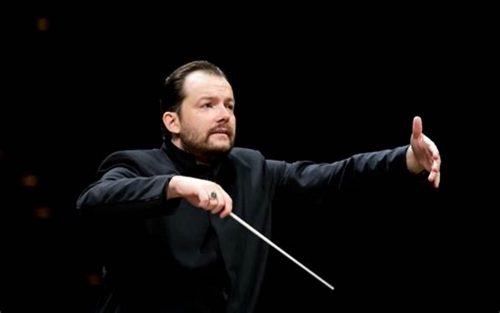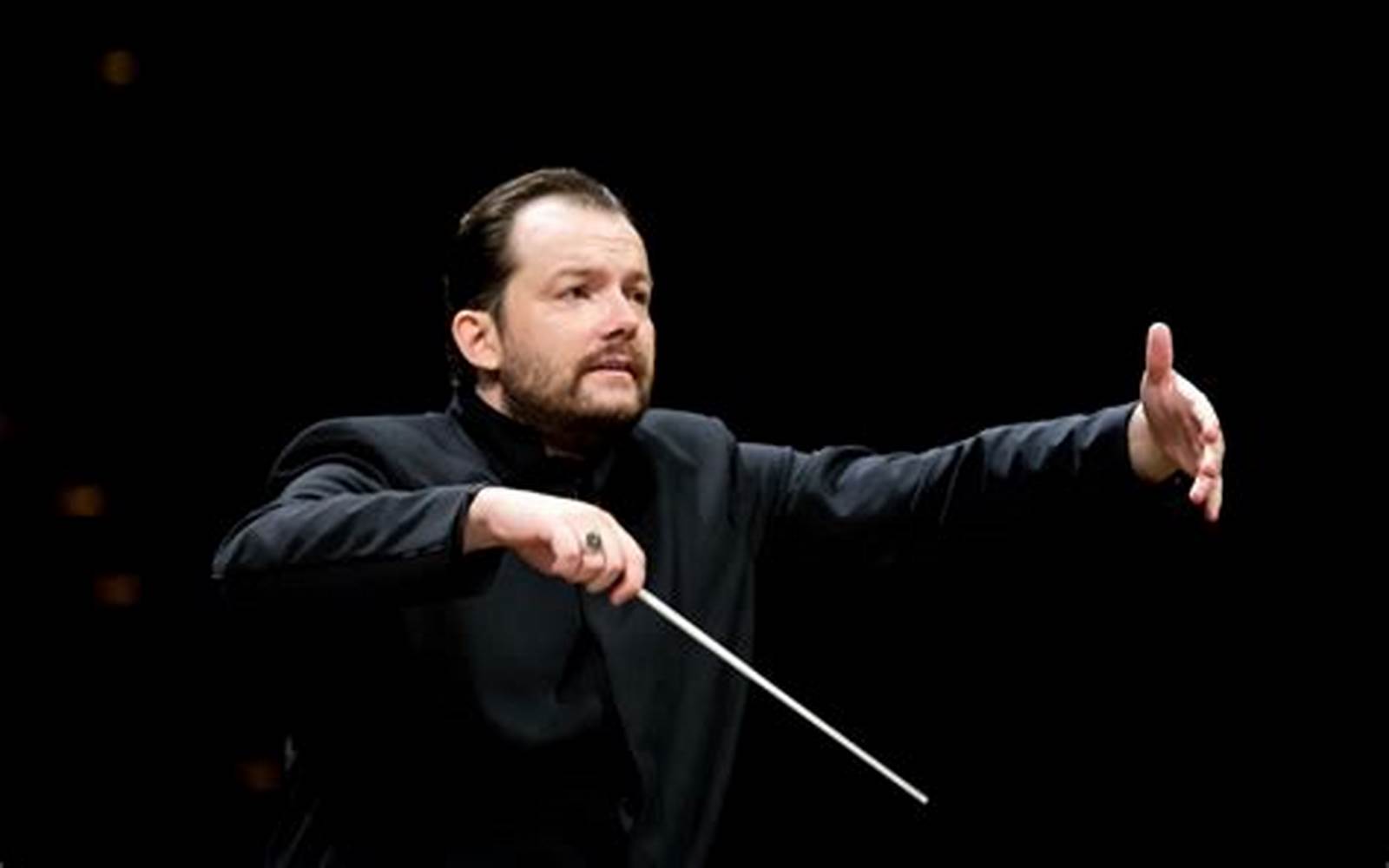 Germany Stravinsky, Mahler: Baiba Skride (violin), Berlin Philharmonic Orchestra / Andris Nelsons (conductor). Performed in the Digital Concert Hall (click here) from the Berlin Philharmonie, 12.12.2020. (GT)
Germany Stravinsky, Mahler: Baiba Skride (violin), Berlin Philharmonic Orchestra / Andris Nelsons (conductor). Performed in the Digital Concert Hall (click here) from the Berlin Philharmonie, 12.12.2020. (GT)

Stravinsky – Violin Concerto
Mahler – Symphony No. 1 in D major
Andris Nelsons was among the candidates for the position of chief conductor of this orchestra several years ago. His performances here in diverse repertoire have always been successful, I have always found him outstanding in bringing out the best in his players, yet somewhat disappointing in bringing out the depths of a composers’ ideas and thoughts. This is evident in his recent Bruckner and Shostakovich recordings. The last time that I saw him at work was for the 2020 New Year’s Day concert from Vienna and this concert marked ten years of Nelsons’ and Skride’s collaborations here in Berlin, and this is the first occasion that the orchestra has played Stravinsky’s Violin Concerto since Viktoria Mullova played it under the baton of Claudio Abbado several decades ago. In her interview prior to the concert, Skride said that in the Stravinsky concerto, the soloist finds it difficult to shine, and it is technically very difficult. The last time that she played here, it was in the Berg Violin Concerto, but she thinks the Stravinsky piece more melodious – something unusual for Stravinsky.
In the brief opening Toccata, following the brass announcement of the main theme, we heard some stunning solo violin mastery, and exceptional virtuosity from the trumpet of Guillaume Jehl, with prodigious contributions from the woodwind, as well as the glorious ribaldry of the trombones.
The mood swiftly changed in the elegiac second movement – Aria I. There was finely articulated playing by the Latvian violinist well supported by excellent playing from the flute before the quite different tone of Aria II, which opened on a dissonance note followed by intense lyricism and quietly meditative playing from the violin. The Capriccio brought a sparkle from the whole orchestra and was taken at a brisk pace with wonderful solos from the flute, solo horn, and then, Skride increased the tempo in some intensely difficult passages interrupted by jocular solos from the wind sections, and before the whole piece closed magnificently there was a great solo from the bassoon.
Nelsons said it was Mahler’s First Symphony that introduced him to this composer’s music when he was searching for something restful to listen to at the age of eleven. Since which he has proved a fine interpreter of Mahler in recent years. In the Langsam. Schleppend movement, the entry on strings and woodwind, was restrained and suspenseful, while the auspicious second idea was embellished by wonderful playing from Egor Egorkin on the piccolo flute. The offstage brass was embellished by calls from the woodwind’s invocations of nature and the awakening of the forest. There were exquisite entries from clarinets, emulating a cuckoo, assisted by colorful harmonies from the horns. A graceful idea on the cellos, picked up by the violins, progressed at a slow tempo, and the transitions in the modulations from A major to F Major were wonderfully managed by Nelsons who throughout showed great craft, ultimately closing with a coda and the great fanfare on the horns, which Mahler described as, ‘my hero suddenly breaks out laughing and runs away.’ In the second movement, Kräftig bewegt, nicht so schnell, the great ‘rocking’ theme was heard wonderfully on the strings. Nelsons was taking delight in this music, overseeing the beautifully invigorating playing – here we heard the joys of life, of happiness, portrayed again from the brass, and the Ländler introduced delighfully by the strings again. There was especially fine playing by the flute in the trio and mesmerizing playing on the violins in the invocation of a joyful life.
In the third movement, Feierlich und gemessen, ohne zu schleppen, following the soft taps on timpani, Janne Saksala announced the ‘Bruder Jacob’ theme on the double bass, which was picked up by the bassoon of Stefan Schweigert, and the brass. There was more fine playing from the clarinet of Alexander Bader of the klezmer music before the reprisal of all three themes closed on the motif from the opening movement.
In the final movement, Stürmisch bewegt, the sudden burst of excitement – that Mahler called ‘the outburst of a wounded heart’ – was quickly followed by spectacular string playing led by Daishin Kashimoto. The second idea of reflective beauty on strings allowed the emergence of the lovely lyrical idea played with great intensity and enhanced by a horn solo from Stefan Dohr. The return of the opening exciting idea was superbly portrayed though inwardly hinting of danger whilst the triumphant ‘And he shall reign’ was announced from Jehl’s trumpet, leading to a march of joyous triumph over adversity. This was quite glorious playing with the horns at last rising in the great climax of the celebratory ending.
In all, this was a tremendous concert showing the orchestra at the height of its powers and led by a great interpretation from the Latvian maestro. When this becomes available on the Digital Concert Hall in a few days, it will be well worth watching.
Gregor Tassie
